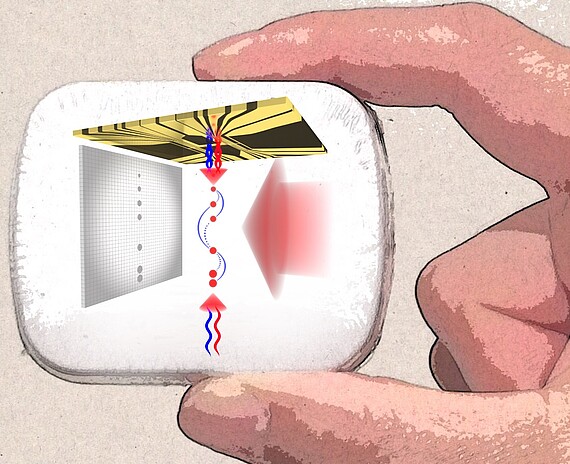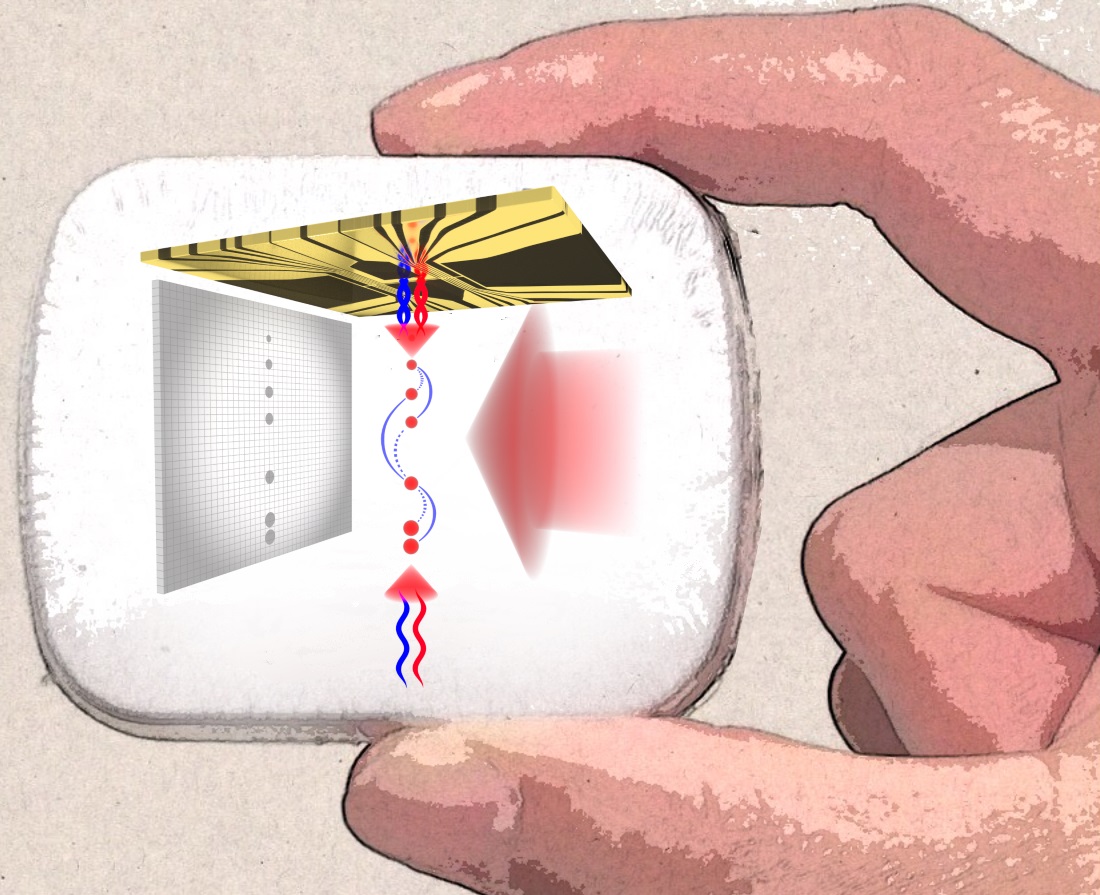


Today, quantum technology is expected to revolutionise our understanding of computing, communication, time-keeping and, especially, sensing. Standing out from today’s inertial measurement units, atom interferometers have proven their superior drift-free measurement principle in laboratory experiments, as well as in transportable devices. The next leap towards lower drift and higher accuracy is expected by using Bose-Einstein condensates (BEC) as probes for the inertial measurement (see QG-1). In 2017, BEC interferometers have even proven their high robustness by performing measurements in space on a sounding rocket mission (see MAIUS). Despite this promising properties, BEC interferometers still suffer from their high complexity, making a support by experienced personnel imperative and, by this, hindering their commercialization.
In this project, we strive for the development of radically new approaches leading to a simplification of the BEC interferometer technology. By combining lately reported methods and extending these to high performance interferometry we are setting up innovative new BEC interferometer prototypes. We develop new generations of atom chips made of low-outgassing, hermetic sealable materials, being equipped with high-quality reflective surfaces or featuring grating structures, and directly incorporate the necessary optics for BEC interferometry. We strive for the demonstration of an innovative, not yet existent, BEC production scheme to drastically simplify this complex quantum technology. This easy-to-use setup will open up access to BECs to non-experts, promising ultra-compact sensors for e.g. navigation, exploration or geodetic surveys based on cold atom technology.
Research goals
- Simplification of BEC production
- Miniaturization of a BEC apparatus to a hand-held device
Open positions
Working with atoms demands a stable polarisation and power of the light applied to the atoms. Up to now, this is realised by the use of polarisation maintaining fibres, which shows imperfections. Therefore, we want to develop and test beam shaping optics, like collimators, which include polarisation filters and give the possibility for power stabilisation.
If you are interested, please contact Dr. Waldemar Herr (herr@iqo.uni-hannover.de).
To operate our atom chip systems, we need several high power lasers, which are frequency stabilised, referenced to a transition in Rubidium and tunable over several hundreds of megahertz. Setting up such a system is the topic of this master project.
If you are interested, please contact Dr. Waldemar Herr (herr@iqo.uni-hannover.de).
At the moment, we are about to see first Rubidium signals in our new atom chip test experiment. The task of this master thesis is the optimisation of the first loading stage (2D+-MOT) and the new 3D-Grating-Chip-MOT. Atomic flux, maximum atom number and the ensembles temperature needs to be optimised to guarantee a high efficiency for loading the prepared atoms into the atom chip.
If you are interested, please contact Dr. Waldemar Herr (herr@iqo.uni-hannover.de).
In order to further develop the atom chip technology, new methods and concepts for more efficient capture and cooling of atoms as well as for faster generation of BECs in more compact and drastically reduced apparatuses are being developed in a test setup. This work is aimed at simplifying the use of atomic optical systems for satellite missions, but also for terrestrial applications such as gravimetry or navigation.
The official tender can be found here.
If you are interested, please contact Dr. Waldemar Herr (herr@iqo.uni-hannover.de).


